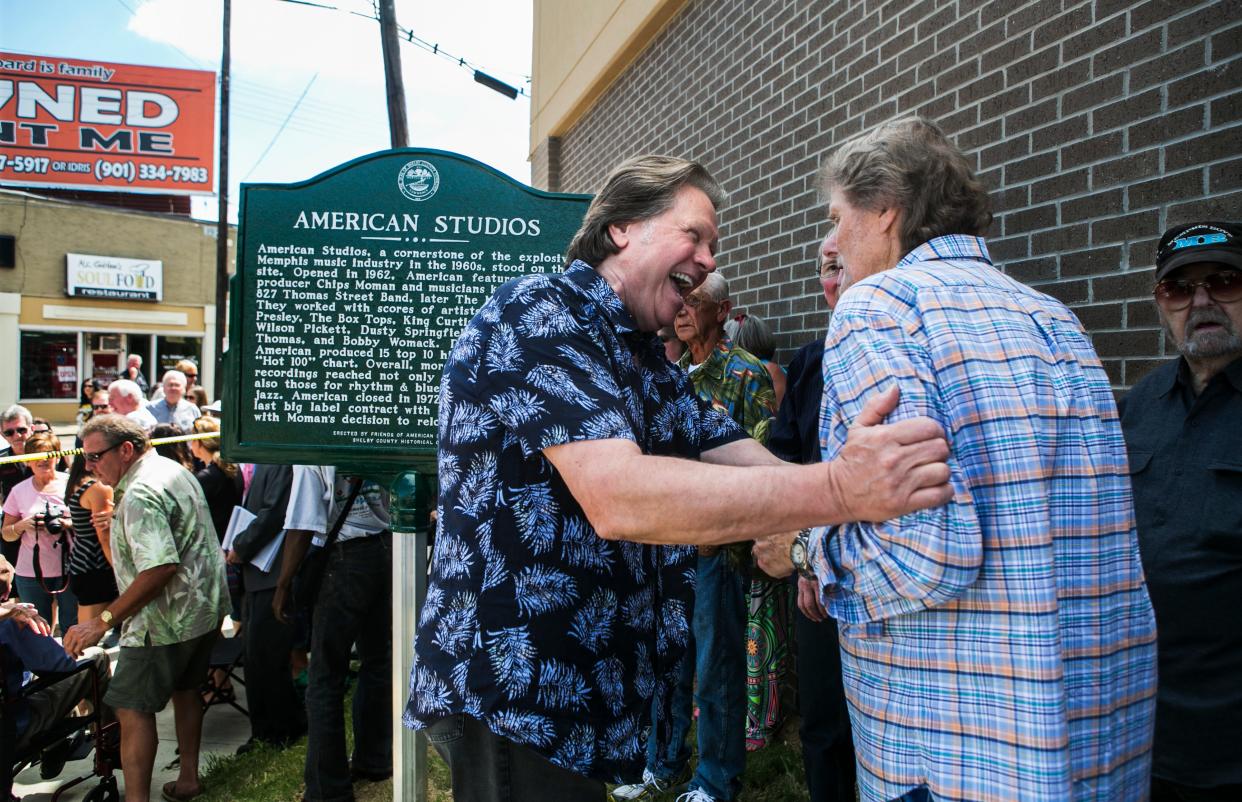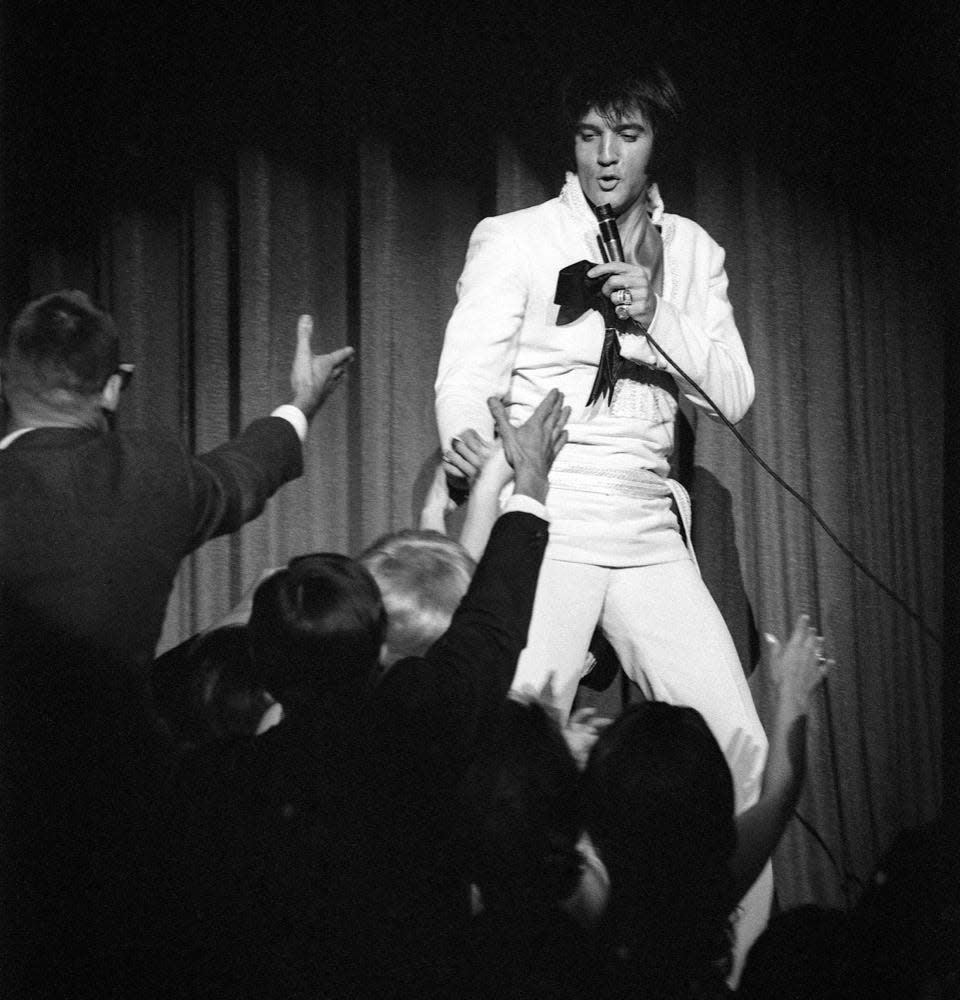What is Elvis' best album? (Hint: It was recorded 55 years ago in Memphis) | Know Your 901
What do you want to know about Memphis?
Know Your 901 is an initiative launched by the know-it-alls at The Commercial Appeal that will seek to answer your questions about the Bluff City and the Greater Memphis region.
Readers, we want your queries and your input! All subject matter is welcome: Culture, art, history, geography, celebrity, TV, music, food, and et cetera. Send questions to knowyour901@commercialappeal.com and we will try to give you an answer in a future column.
Today's column is in response to a frequent query...
What was Elvis Presley’s best album and where was it recorded?
Although many consider Elvis' mid-1950s sessions with Sam Phillips at Sun Records his most seminal work and his RCA recordings in Nashville and New York in the late-'50s his most successful, in terms of a single album, the consensus is Presley's best and most creatively satisfying LP was 1969’s “From Elvis in Memphis,” recorded —– where else? — in his hometown of Memphis, Tennessee.
By January 1969, Presley was at a creative crossroads. With his years of movie commitments satisfied and the televised “'68 Comeback Special” behind him, Elvis was ready to get back to serious recording. As it happened, the hottest producer (Chips Moman), band (The Memphis Boys) and studio (American Sound) in the world were right in Presley's backyard in the Bluff City.
Fifty-five years ago this month, Presley entered American with Moman and The Memphis Boys and created his most accomplished body of work. (That effort was celebrated this past week as part of Elvis' annual birthday festivities at Graceland.)
A guitarist, songwriter and producer, Lincoln “Chips” Moman had been instrumental in the early history of Stax, before going to launch American Sound Studios. While Presley was busy turning out his movie musicals in the '60s, Moman and American — located on Thomas Street in North Memphis — had grown into a monster. Moman had recruited a crack unit of players from the house bands at Hi Records and Phillips Records to form the American Studios group, dubbed The Memphis Boys: guitarist Reggie Young, drummer Gene Chrisman, pianist Bobby Wood, organist Bobby Emmons and bassists Mike Leech and Tommy Cogbill.
ELVIS TRIVIA: Think you know everything about the King? Try to answer these questions
The lineup, mostly with Moman behind the board, would become a hit-making machine in the latter half of the '60s, working up a series of chart smashes for artists like the Box Tops ("The Letter''), Dusty Springfield ("Son of a Preacher Man''), Neil Diamond ("Sweet Caroline''), B.J. Thomas ("Hooked on a Feeling'') and Bobby Womack ("Fly Me To The Moon").

Given the firm grip of Elvis' manager, Col. Tom Parker, his label RCA and song pluggers at Hill and Range Music Publishers, getting Elvis into Moman's studio proved a challenge. It was Marty Lacker — a onetime foreman for Presley, who'd gone to work for Moman — who essentially brought the project in through the back door.
"Marty was working for me and he was still in close with Elvis," Moman recalled in a 2009 interview with The Commercial Appeal. "So Marty was talking to me about Elvis and talking to Elvis about me and slowly bringing us together. He's really the one that got that album to take place."
The sessions, which took place in January and February of 1969, began with a bit of turbulence, as Moman was forced to take charge, clearing the studio of Presley's pals and business associates, and setting the tone for the record he wanted to make.
The real secret of the sessions was finding the right material for Presley. A gifted songwriter himself, Moman was always looking for the next hit tune. Among those who provided songs for the Presley album were up-and-coming young writers like Mac Davis ("In the Ghetto"), Mark James ("Suspicious Minds") and Eddie Rabbitt ("Kentucky Rain"). Combining the fresh material with a mix of old country, R&B and rock favorites, Presley was able to showcase his range and interpretive gifts.
While the sessions at American were not unique from a musical standpoint — "we did exactly what we normally did" Moman would recall — Presley was being pushed in the studio for the first time in more than a decade, performing with a newfound energy and enthusiasm across the more than 30 tracks that were cut.

Released in June of ’69, “From Elvis in Memphis” would reach No. 13 on the Billboard album charts, while a string of singles from the sessions, including “In the Ghetto,” “Don’t Cry Daddy,” “Kentucky Rain” and “Suspicious Minds” would return Elvis to top of the singles charts. The King's musical resurgence continued with his return to live performing later that year in Las Vegas.
RANKING ELVIS' BEST SONGS: Our picks vs. ChatGPT's
A year later another album, “Back in Memphis,” containing leftovers from the American sessions, was released. Over the decades various compilations and deluxe editions have further chronicled the sessions, including the elaborate 2019 digital box set, “American Sound 1969.”
But when it comes to one defining LP, it’s hard to top “From Elvis in Memphis,” as the essential album in the King’s canon.
This article originally appeared on Memphis Commercial Appeal: What is Elvis' best album? The story behind our top pick
